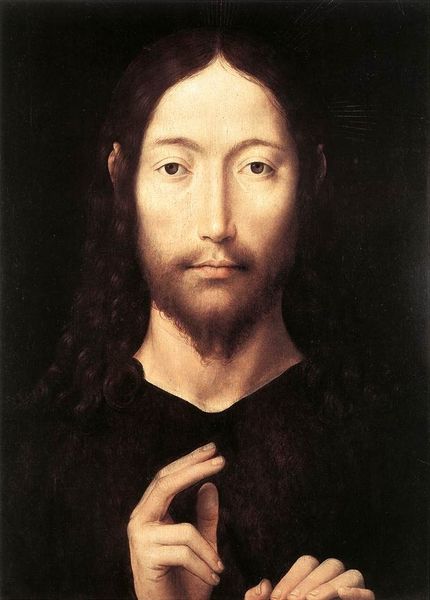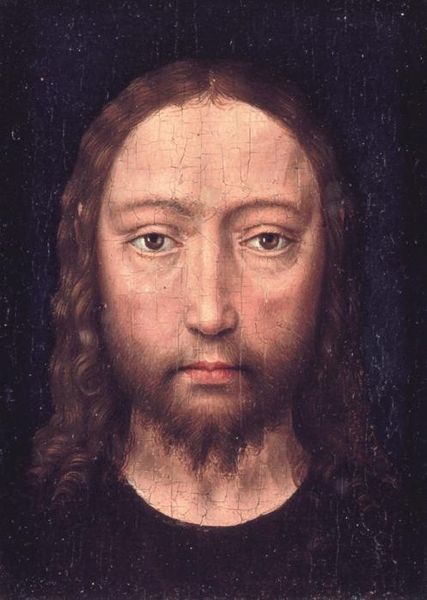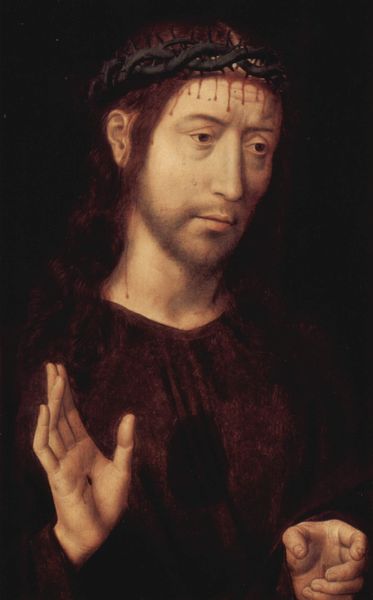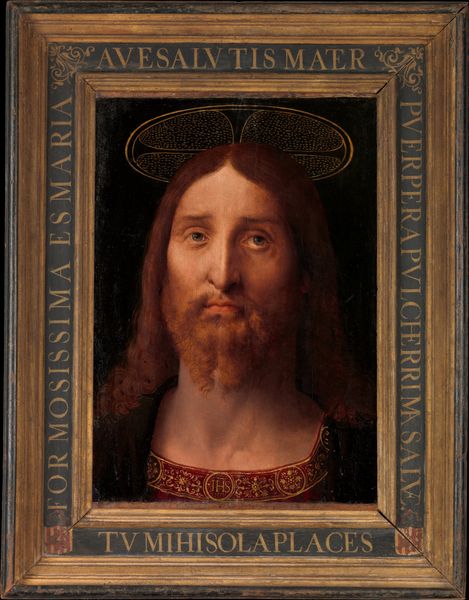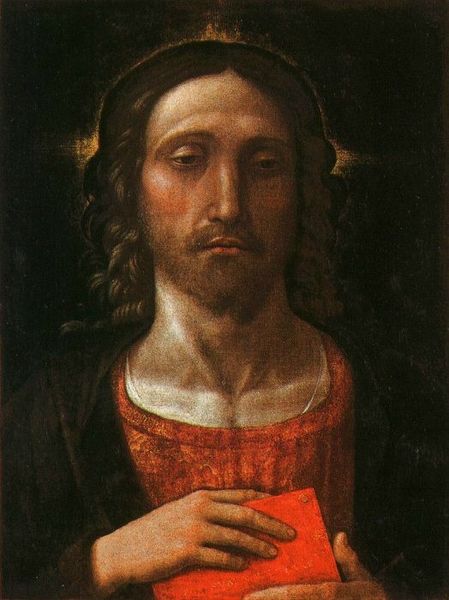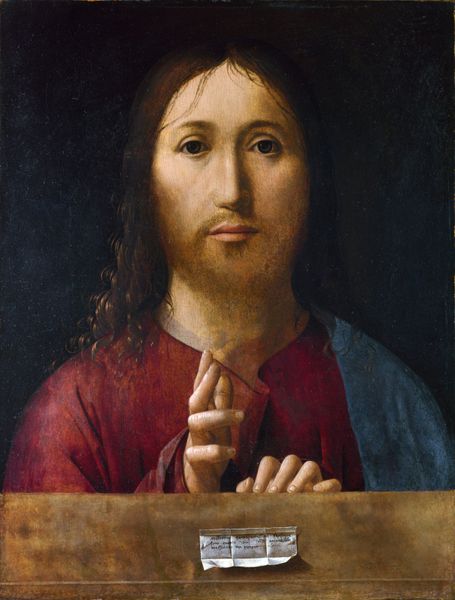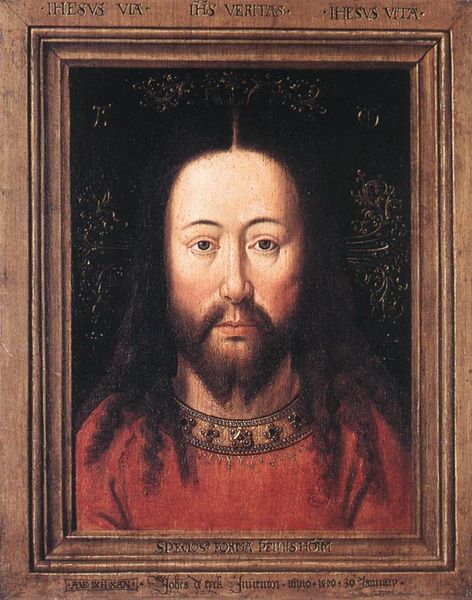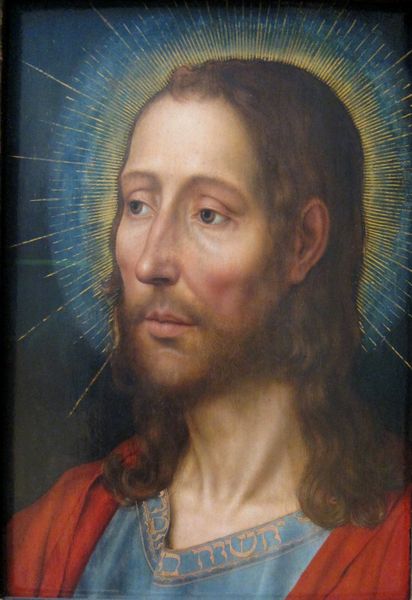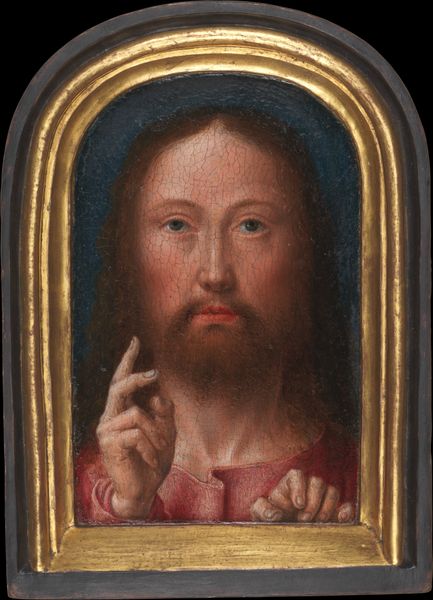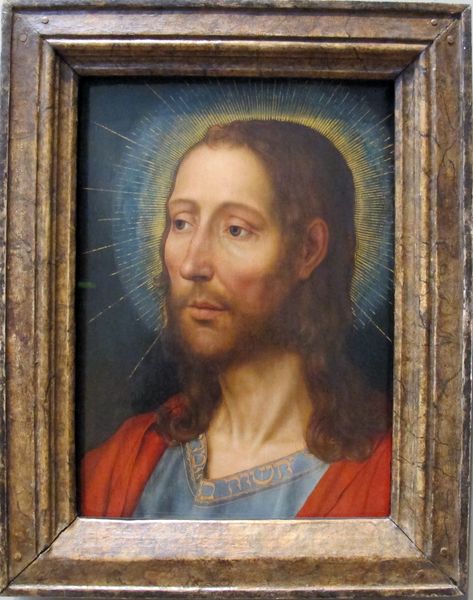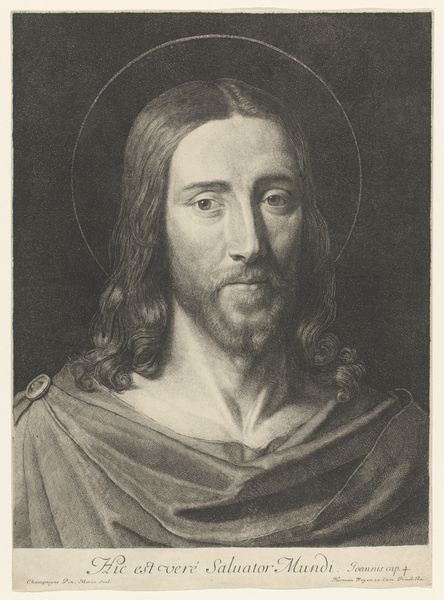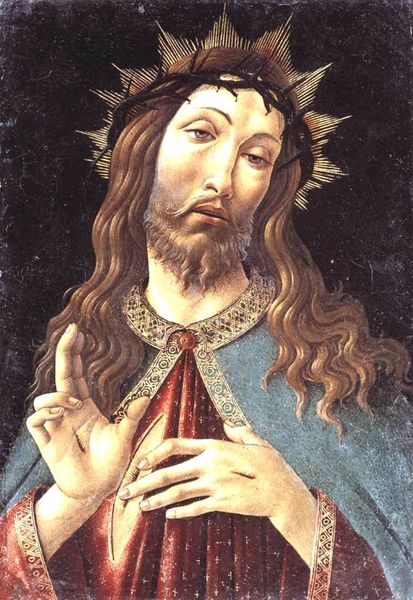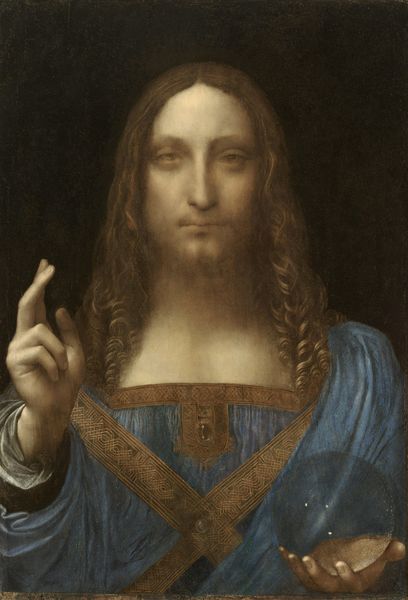
oil-paint
#
portrait
#
oil-paint
#
oil painting
#
portrait head and shoulder
#
history-painting
#
italian-renaissance
#
portrait art
#
realism
Dimensions: 35 x 26 cm
Copyright: Public domain
Curator: Let's consider Hans Memling's "Christ Giving His Blessing" from 1481, currently at the MFA Boston. The stark directness feels very compelling to me. What do you see? Editor: It does have an immediate presence! The gaze is really intense. He seems… accessible? The oil paint makes it so realistic. What does this piece say in the context of religious art from that period? Curator: I see this as more than a religious portrait; it’s a deeply political statement. Think about the power dynamics at play during the late 15th century. Who had the authority to represent Christ, and to whom were these representations directed? And even what model may have posed for this artwork in that time. Editor: So you're saying it's not just about faith, but also about control and maybe even, about access to the divine, rendered in paint for a specific elite audience? Curator: Exactly! Consider how Memling, located in Bruges, was operating within a complex web of religious, economic, and social powers. His Christ, while seemingly benevolent, also reinforces a specific, potentially exclusionary, vision of faith, gender, race and holiness. Think about who gets to *see* themselves represented in the divine. What are the implications of that representation on others that do not. How does it affect society then and perhaps still now. Editor: That's such an interesting way to frame it. I always thought of these works as purely devotional, but I see now that they are completely embedded in the structures of power and representation of that period. I never considered that lens. Curator: Art doesn't exist in a vacuum. It's always participating in a dialogue with the world around it. It is not necessarily or intentionally an act to alienate others, but perhaps not consciously considerate either. It reflects and refracts the ideologies of its time, intentionally or otherwise. Editor: I'll definitely carry this expanded view of historical context into my future art viewings!
Comments
No comments
Be the first to comment and join the conversation on the ultimate creative platform.
